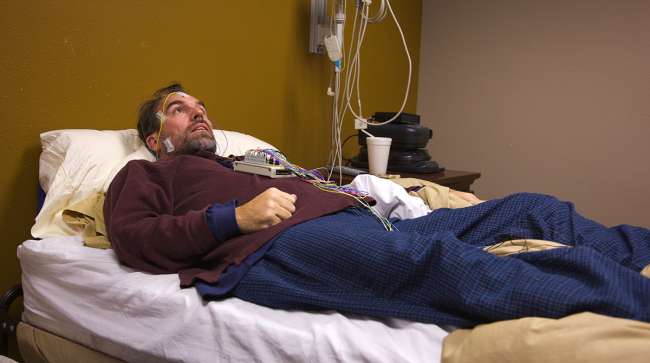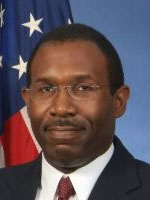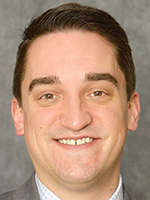Senior Reporter
FMCSA Responds to Medical Board on Sleep Apnea Guidance

[Stay on top of transportation news: Get TTNews in your inbox.]
The Federal Motor Carrier Safety Administration is expanding access to information about obstructive sleep apnea for medical professionals who conduct medical examinations for truck drivers, responding to an outcry from its own medical review board and one well-placed agency official about a lack of direction for health care providers on the issue.
During a virtual meeting last month, the five doctors on the FMCSA medical review board put pressure on the agency’s leadership to add links to apnea reference material in the FMCSA medical examiners handbook. An update to the more than 250-page handbook — which was removed from the agency website for download in 2015 — is ongoing. The May 20 virtual meeting was held to discuss updates and tweaks to the handbook.
The board’s doctors — among the top occupational physicians in the nation — argued that the issue of sleep apnea had become “political,” suggesting that some examiners and FMCSA itself seem timid in pressing the issue too hard with drivers since the agency has issued no official regulatory guidance on when to require a truck driver who may be at risk for apnea to participate in a sleep lab study.
One hurdle for the agency is a 2013 law passed by Congress that forbids regulators from issuing official guidance to help medical examiners diagnose drivers at risk for OSA without going through the yearslong rulemaking process.

Minor
Larry Minor, FMCSA’s associate administrator for policy, acknowledged during the meeting that the apnea issue has been “nearly nuclear,” a likely reference to a 2016 attempt to resurrect the issue through a joint Advance Notice of Proposed Rulemaking with the Federal Railroad Administration for regulatory apnea guidance. In 2017, that ANPRM was withdrawn with the agency saying current safety programs addressing fatigue risk management “are the appropriate avenues to address OSA.”
The agency continues to maintain that there is not clear evidence suggesting that apnea can be directly linked to crashes.
In response to questions submitted by Transport Topics, the agency said it currently has no plans to issue rulemaking guidance, but said it has decided to include in the examiner’s handbook additional information about sleep apnea and post a reference and link to the medical review board’s past deliberations and specific recommendations in diagnosing and treating the disease.
In its statement to TT, FMCSA said it acknowledges the concerns about the relationship between moderate to severe obstructive sleep apnea and commercial motor vehicle drivers’ health and performance behind the wheel.
“Drivers with untreated moderate to severe OSA are at increased risk of being fatigued while driving — regardless of the amount of off-duty time prior to the beginning of the work shift,” FMCSA said. “The agency believes all medical examiners on the National Registry of Certified Medical Examiners should be aware of the OSA risk factors so that drivers exhibiting such conditions are referred to a sleep specialist for evaluation.”
Yet, the statement to TT noted the agency “does not have sufficient data or information to support issuing a Notice of Proposed Rulemaking to establish requirements for mandatory OSA testing and treatment.”
Minor told the board that the issue of sleep apnea is causing “all kinds of commotions.” He said, “We’re still not clear why it’s obstructive sleep apnea more than anything else.”
Minor noted there is nothing in federal regulations that state an examiner has to screen “each and every driver that comes in for OSA, and we don’t have any regulatory criteria that says you must send him out for an OSA [sleep] test.”
Brian Morris, a doctor and review board member, said, “The board put a lot of effort in coming up with guidelines for sleep apnea that included a menu of symptoms and signs by which you would screen people, and then get sleep studies to look for the presence of sleep apnea. The special interest groups stepped in and kind of torpedoed the whole process.”
“Drivers commonly don’t want to be screened for apnea because they may have to pay for sleep studies, which can cost more than $1,000,” added Morris, a corporate director of medical surveillance for OccMed in Boston.

Horvath
“I find it interesting that the political process has had so much influence on a medical problem,” said board member Michael Kelley, senior medical director of ambulatory services at OhioHealth Neighborhood Care in Columbus. “I would suspect that it will be very rare for drivers from here on out to either be tested or treated for sleep apnea unless they truly want to.”
Dan Horvath, vice president of safety policy for American Trucking Associations, said ATA’s stance is that any guidance from FMCSA should be done through the rulemaking process.
“It’s not just about screening standards of who should be sent in for a sleep apnea test,” Horvath said. “What also needs to be addressed is how you treat it after the fact. It’s a pretty big, complex issue. And there’s a big inconsistency out there.”
Want more news? Listen to today's daily briefing below or go here for more info:

